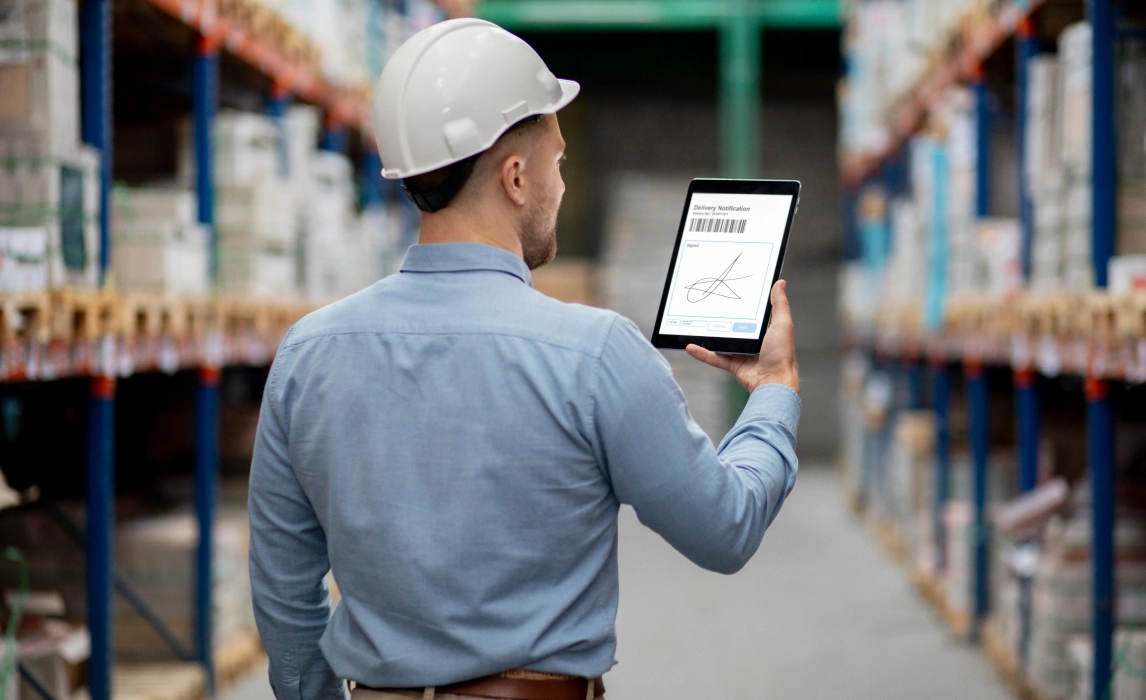Key Features Every Logistics App Should Have
The logistics industry serves as the backbone of global trade and a vital pillar of...
The logistics industry is responsible for managing and coordinating the flow of goods, information, resources, services, etc., from their origin to the final destination cost-effectively. Industry professionals ensure timely transportation, storage, and delivery of goods and services to the respective customers and businesses.
The industry operates in different sectors, including transportation, warehousing, inventory management, order fulfillment, supply chain management, freight forwarding, last-mile delivery, etc.
For example, a logistics company manages pipelines, storage facilities, trucks, and distribution centers that handle oil and transport it for customer or business usage.
The significance of the logistics industry is crucial for global trade, retail, e-commerce, manufacturing, and many other sectors. Effective logistics management reduces goods transportation and management cost, improves customer satisfaction, and ensures faster delivery.
The logistics industry plays a vital role in managing global trade and commerce, encompassing the movements of resources, services, goods, and information across various sectors. Over the years, the industry has evolved, adapted technology, and left the traditional business methods behind. The changes have positively impacted its growth and market share.
Here is a market analysis of this evolution and significant change.
Technology has propelled the growth of logistics companies and helped organizations automate, manage and streamline complex and manual operations. However, this automation is just the beginning of a remarkable contribution.
Technology has completely transformed the way logistics businesses carry forward their operations. Here is a detailed insight into this contribution and its impacts.
Warehouse management system software control and manage various warehouse operations, including inventory tracking, order processing, shipment coordination, etc. It optimizes the use of resources and gives insights into real-time data for better decision-making.
Moreover, conveyor systems incorporated with automation technology sort and move goods within the warehouse. They streamline order processing and fulfillment, reduce manual handling, and enhance accuracy.
Technology has facilitated the incorporation of advanced software for transportation management, warehouse management, enterprise resource management, etc. This invention ensures seamless data exchange and handling and reduces the need for manual data entry.
Modern data analytics tools collect and process huge volumes of data from various sources and identify trends, patterns, consumer preferences, and industry insights. This data-driven approach supports logistics companies in predicting demand, optimizing routes, and fulfilling orders on time.
Technology has ensured uptight security with its advanced safety measures against theft, fraud, cyberattacks, and unauthorized access. Access control systems leveraging technologies like RFID cards, biometric authentication, and keypad entry to limit access to authorized personnel only, preventing unauthorized entry to sensitive areas.
In addition, cyber security parameters like data encryption, regular security audits, geofencing, GPS tracking, intrusion detection systems, etc., protect digital assets and data from security breaches, data theft, hacking, phishing, and other security concerns.
Tech tools, software, and robotics have automated manual and repetitive tasks like data entry, inventory management, order processing, etc. The initiative has led to increased operational efficiency, reduced errors, and faster processing time, allowing logistics companies to manage large volumes of orders and shipments.
Technical advancements and logistic apps have enabled seamless communication, data transfer and exchange, team collaboration, and networking for logistics companies.
Now, logistics professionals can access critical information, share and transfer data privately, track shipments, and manage operations efficiently. The connectivity that technology has offered is at par as compared to the traditional era where communication was limited to calls and messages.
With its advanced measurements and inventions, technology ensures easy access for logistics companies and their consumers. It offers convenient tools for both parties, streamlining operations and increasing customer satisfaction.
Technologies, including mobile apps, cloud-based solutions, remote monitoring systems, automated reporting, data analytics dashboards, etc., keep employees updated with the latest ongoings.
On the other hand, e-commerce platforms, digital catalogs, chatbots, virtual assistance, mobile apps, flexible order and delivery options, easy returns, and digital payments have attracted more people, increasing the customer base for the industry.
Technologies like Electronic Data Interchange (EDI), Document Management Systems (DMS), digital signatures, Electronic Bill of Lading, electronic invoicing, mobile apps, scanning, and OCR have streamlined the documentation process.
They have eliminated the need for keeping records on paper and transferred the work to technology, ensuring paperless document handling, record keeping, increased efficiency, reduced errors, and an environment-friendly approach.
The approach is safer, cost-effective, and more convenient than keeping records and data on paper. Electronic documentation also complies with legal and regulatory requirements.
Before technology, consumers could only order during working hours, and supply chains also fulfilled the order within their timezone.
Now, technology has shifted the demand and enabled consumers to place orders anytime, anywhere. It has cut down latency and delays in order placing, supply chain management, and order fulfillment. These advancements have spiked consumer demand, bringing more profits and customers to the industry.
Technology helped logistic companies foster long-term relationships with clients by providing improved communication, real-time tracking, automated notifications, customer portals, data analytics, personalization, supply chain visibility, and exceptional management.
Companies offered continuous support using these technologies providing efficient, transparent, and personalized services.

The logistics industry serves as the backbone of global trade and a vital pillar of...